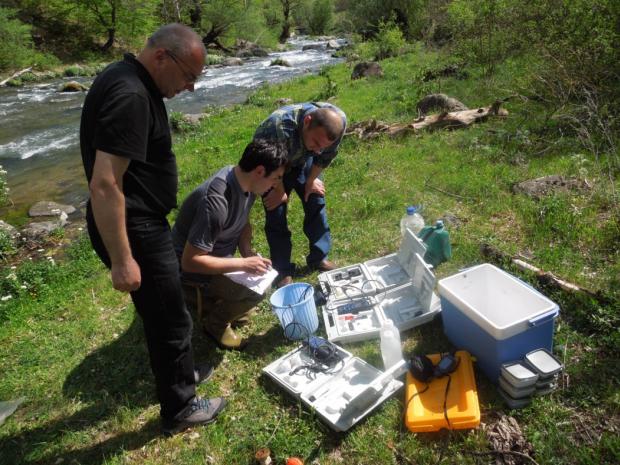Project: Environmental Protection of International River Basins (EPIRB) (2012-2016)
What is the environmental issue and its importance?
The Eastern Partnership countries have become increasingly aware of the need to adopt a river basin-wide approach to water resources management, reflecting the principles enshrined in the Water Framework Directive (WFD). Countries have already implemented a number of actions to improve trans-boundary river basin management in light of the WFD requirements. The Water Framework Directive provides principles, targetsand methodologiesfocused on ensuring all the EU’s waters have ‘good’ environmental and chemical status by 2015. Its approach to Integrated Water Resources Management is globally recognised as a best practice in this field. Implementing WFD obligations requires significant human and financial resources and poses particular challenges for countries that have inherited a ceiling concentration — i.e. Maximum Allowable Concentrations — approach to water resources management. Of course, water quality is important for protecting public health, but water also provides ecosystem habitats, is used for farming, fishing and mining, and contributes to recreation and tourism. The best way to protect and manage water is through close trans-boundary cooperation between all the countries within the natural geographical and hydrological unit of the river basin, and thus combining upstream and downstream interests.
What is this project about?
The Environmental Protection of International River Basins—or, EPIRB—project aims to improve water quality and its management in the trans-boundary river basins of Armenia, Azerbaijan, Belarus, Georgia, Moldova and Ukraine. The project, which started in 2011 and will conclude in 2015, has an operating budget of EUR 7.5 million. Specifically, EPIRB provides support to countries so that they can:
- improve the availability and quality of data on the ecological, chemical, and hydro-morphological status of trans-boundary river basins, including groundwater;
- increase the capacities of respective national authorities to carry out hydro-biological, chemical, and hydro-morphological monitoring of water quality, including groundwater;
- assess various needs regarding laboratory infrastructure, equipment and training;
- develop River Basin Management Plans (RBMPs) for selected river basins and sub-river basins according to the requirements of the EU Water Framework Directive; and
- increase technical capacities by means of implementing RBMPs for selected rivers.
Initial river basin analysis reports for the five following pilot river basins have been developed:
- Akhurian Basin District (Armenia);
- right tributaries of the Central Kura (Azerbaijan);
- Upper Dnieper Basin (Belarus, Ukraine);
- Chorokhi-Adjaristskali Basin (Georgia); and
- Prut Basin (Moldova, Ukraine).
‘’One of the key project outputs is the development of a River Basin Management Plan for the country’s main river basin, the Prut River. The plan will be updated every six years by the Ministry of Environment, and will contribute to the Moldovan Government’s priority goal of meeting EU requirements in relation to water protection.”
(Svetlana Stirbu, First Deputy Director of the State Hydrometeorological Service of Moldova)
Read more: http://blacksea-riverbasins.net

Joint Field Survey in the Alazani River Basin, Georgia
